Projects
Projects in Process
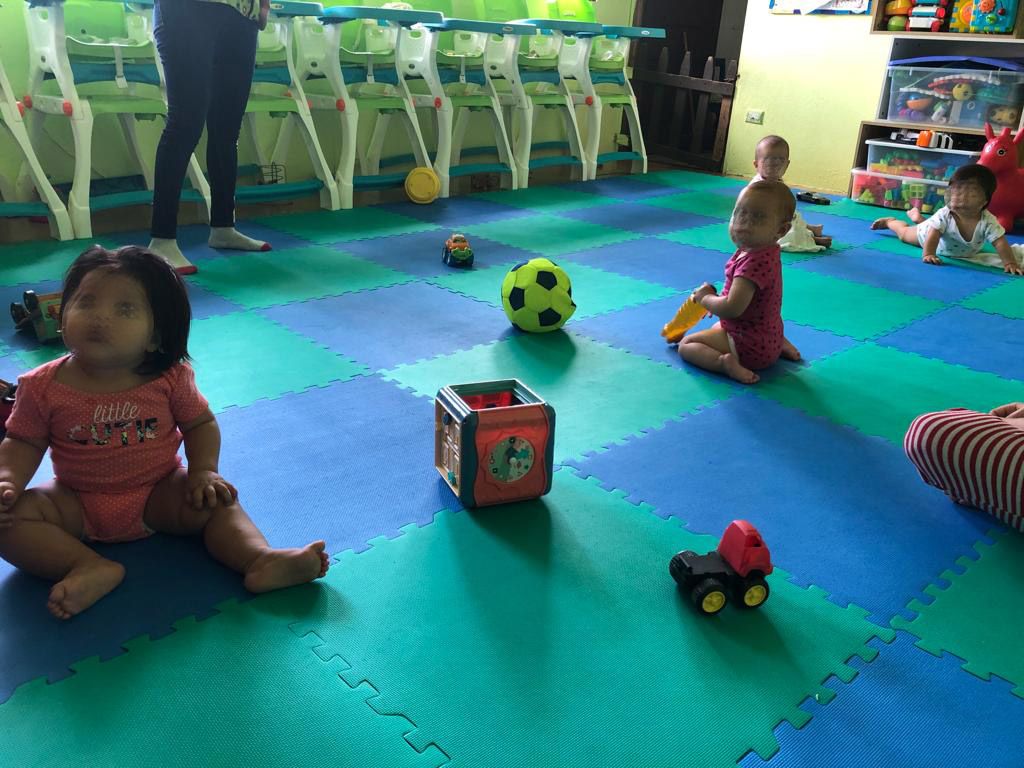
Donation of a special therapeutic carpet for the early stimulation of the babies of the Hogar Asociación Posada de Belén
The Asociación Posada de Belén, Madre Teresa de Calcuta was founded on April 29, 1999 through an agreement with PANI and the Episcopal Conference of Costa Rica, in order to help, protect and care for adolescent girls who are victims of risk situations.
Read MoreAsociación Posada de Belén
Donation of a special therapeutic carpet for the early stimulation of the babies of the Hogar Asociación Posada de Belén
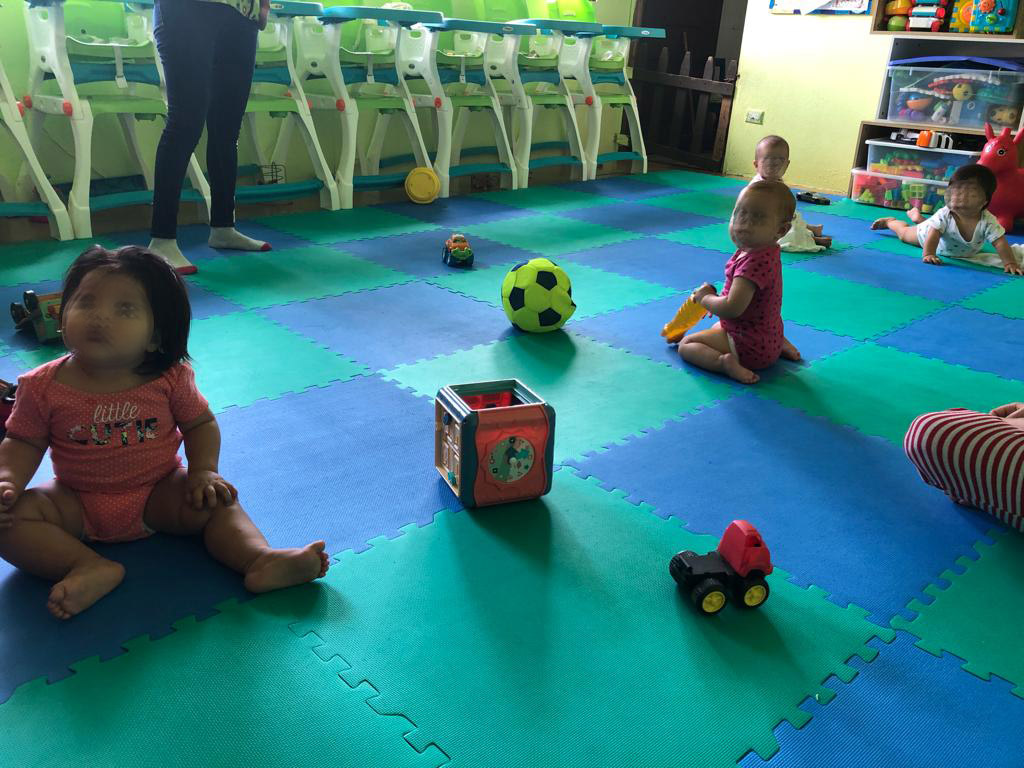
Beneficiary Information:
The Asociación Posada de Belén, Madre Teresa de Calcuta was founded on April 29, 1999 through an agreement with PANI and the Episcopal Conference of Costa Rica, in order to help, protect and care for adolescent girls who are victims of risk situations.
In the Association, the adolescents possess resources that validate their rights as minors, in the following areas
- Basic Needs: Covers needs in terms of food, clothing, personal items, among others.
- Health Area: Covers needs in the area of health. There is a doctor's office and staff in the area.
- Recreation area: Recreational activities are provided, both for the adolescents and their children.
- Psychology and social work area: Professionals in the area provide individual therapeutic processes, psycho-educational workshops, legal processes, social assessments and coordination with different entities.
- Education area: It has a private educational centre, accredited by the Ministry of Education, where primary and secondary levels are taught.
- Training area: They offer training workshops in computers, bakery and beauty, as well as external courses for adolescent girls of seventeen years of age. The above, with the aim of creating secure sources of employment and a satisfactory and adequate reintegration into society for her and her child.
- Cradle house area: This area provides care for the children of teenage girls, where they are given a daily environment suitable for their development, where they receive early stimulation, learning and activities appropriate to their age.
DESCRIPTION OF THE PROJECT
Our support is aimed at financing the installation of a carpet for the stimulation therapies of the children of the Asociación Posada de Belén.
The integral attention and care of the babies of the teenage girls is a priority of the association. The early stimulation or care mainly promotes the psychomotor development of the baby, as well as their cognitive development, which is achieved through activities where they have fun and facilitate their future learning.
The special mats for this practice seek multisensory stimulation which allows children to feel different textures and explore different materials thus stimulating a wide coordination, tactile perception, curiosity and imagination, in addition to providing safety and hygiene when performing therapies.
Our objective is to provide the association with this important tool for the enjoyment and practice of this sensory tool for the development and cognitive strengthening of children.
WHO BENEFITS FROM THIS PROJECT?
The work of the Association focuses on the protection of adolescent mothers, in situations of risk and vulnerability, who have been victims of situations such as sexual abuse, domestic violence, extreme poverty and lack of family or community resources.
The profile of the protected population is made up of 60 adolescent mothers aged 12 to 18 years old and their 60 children aged 0 to 6 years. Most of them are pregnant or are already mothers. They have been victims of some risk situation, their rights as minors have been invalidated, the support resources they have are limited, so they must establish their life project based on their own abilities. Their educational level is mostly low, they have a schooling below their chronological age. In addition, due to lack of stimulus and other cultural conditioning factors, they have some learning difficulties.
They do not belong to a specific region; the population is made up of adolescents from all over the country, including foreigners from Nicaragua and Panama. These girls and young women have decided to say Yes to Life and stand by their sons and daughters, exercising their role as mothers at the same time as they live their own adolescence.
The work of the institution is aimed at them as mothers, as part of the economically active population, as members of a society, as healthy people not only physically but also inwardly. And it is also aimed at them as girls and adolescents, empowered to accept their life story and a future that will benefit their development and that of their son or daughter.
The area of early stimulation is of great help and benefit to the babies of these girls, as it will create a positive impact for all of them.
REQUIREMENTS
The following material is required to equip the early stimulation room:
- 42 AEROSOFT type sheets. Of 60 x 60 cm. 15mm thick. Green color
- 42 AEROSOFT type sheets. Of 60 x 60 cm. 15mm thick. Blue color
OBJECTIVES OF THE ASSOCIATION
- To provide teenage mothers with adequate psychosocial, human, academic and work preparation.
- Execute a leading management model in the comprehensive care of adolescent mothers.
- To be a guarantor of children's rights.
- To build foundations that allow for patterns of response in accordance with the needs of today's Costa Rican society.
- To open doors so that the adolescent mother can build a new future for herself, her baby and future generations.
INVESTMENT
The value of the project is USD 950.00 which includes material, labour, and monitoring during implementation.
CONTRIBUTION OF THE BENEFICIARY:
- Purchase of the therapeutic mat for early stimulation.
- Coordination of installation
- Installation supervision
Who supported?
Tourist clients of ARA Tours who donated to the Selected Moments (SEMO) programme.
Completed Projects
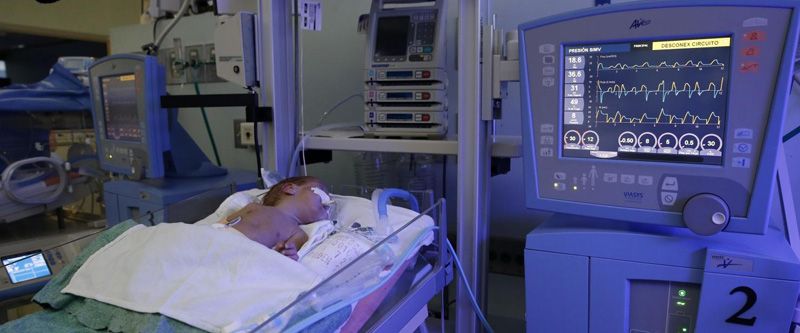
HOSPITAL MEXICO NEONATOLOGY UNIT
The Neonatology Unit of the Hospital Mexico received state-of-the-art technological equipment donated by the same Social Protection Board of San José
Read MoreHOSPITAL MEXICO NEONATOLOGY UNIT
HOSPITAL MEXICO NEONATOLOGY UNIT
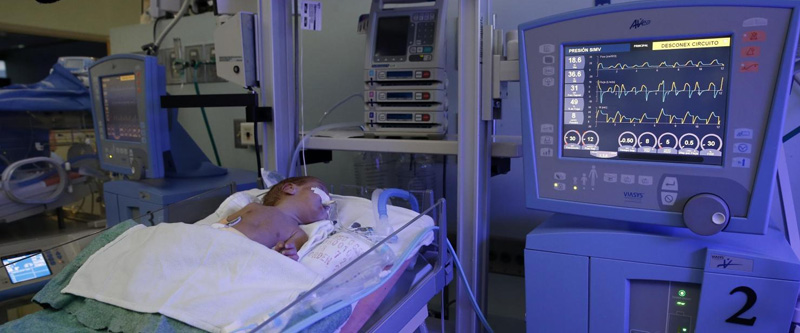
With the aim of increasing the life expectancy of newborns with equipment to increase and reduce the temperature of the babies according to their needs, our organization supported the process of presenting the project to the Social Protection Board. Thanks to our efforts, the Neonatology Unit of the Hospital Mexico received state-of-the-art technological equipment donated by the same Social Protection Board of San José.
The first of this equipment was a series of plastic suits made of polyethylene, called Noehelp, which can be used to increase the temperature of babies born before 37 weeks of pregnancy, i.e., in a premature condition.
About 85% of preterm babies born at less than 1500 grams have temperatures below 36C, which is why they require this special care.
Prior to the acquisition of this equipment, the medical staff of the unit had to improvise to keep the babies at a stable temperature.
In addition to the thermal suits, a cooling system for term babies, who are born after 37 weeks, was also purchased. This equipment facilitates the breathing of newborns who experience oxygen deprivation.
INVESTMENT:
The project was approved on 09 December 2019 for a value of CR¢214,118,000 (two hundred and fourteen million one hundred and eighteen thousand colones).
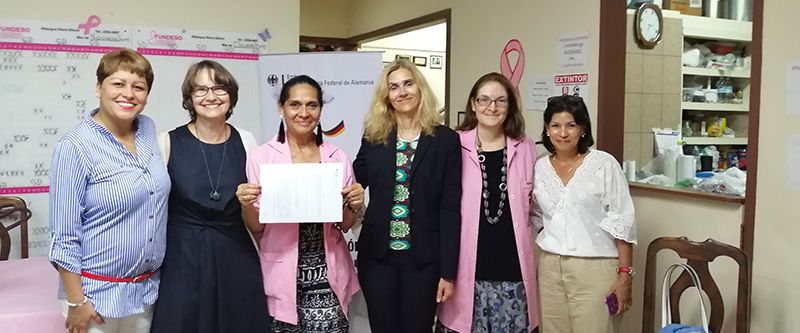
Fundación Nacional de Solidaridad contra el Cáncer de Mama (FUNDESO)
The Fundación Nacional de Solidaridad contra el Cáncer de Mama (FUNDESO) is a non-profit organization, made up exclusively of volunteers and dedicated to the fight against breast cancer, through various programmes.
Read MoreFundación Nacional de Solidaridad contra el Cáncer de Mama (FUNDESO)
Fundación Nacional de Solidaridad contra el Cáncer de Mama (FUNDESO)
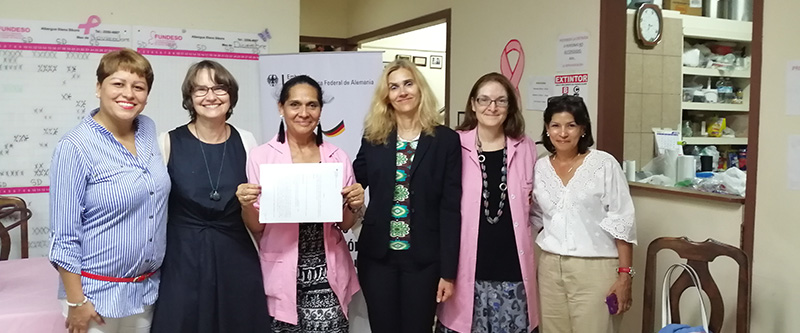
The Fundación Nacional de Solidaridad contra el Cáncer de Mama (FUNDESO) is a non-profit organization, made up exclusively of volunteers and dedicated to the fight against breast cancer, through various programmes.
It is constituted by a General Assembly, made up of 61 volunteers. An Administrative Board composed of five directors, with voice and vote: President, Secretary, Treasurer, Representative of the Executive Power and Representative of the Municipality of San José. A Support Committee made up of 4 volunteers, with the right to speak but not to vote.
The Fundación Nacional de Solidaridad contra el Cáncer de Mama (FUNDESO), is located in San José, Paseo Colón, 150 m west of the Emergency entrance of the National Children's Hospital. Between streets 22 and 24, Av, 2, house #2259. It was founded on November 5, 1983.
Its main work areas are:
AWARENESS RAISING:
- Free talks, wherever and whenever requested.
- Participation in health fairs.
EARLY DETECTION:
- Almost immediate and inexpensive referral to competent radiological laboratories for mammography and breast ultrasound examinations.
- Appointment with specialist doctors for assessment
- Referral for biopsies.
- Remote Programme
- SCHOLARSHIP Programme
COMPREHENSIVE REHABILITATION:
- Free accommodation in the Elena Sikora Hostel,
- Visits to newly operated patients in hospitals
- Self-help groups, with free support of three psychologists
- Physical therapy
- Sale and/or donation of external prostheses and special bras at cost price.
- Rental and loan of wigs and turbans
- Help with the purchase and placement of catheters
- Nipple and areola tattooing programme
Our contribution is aimed at seeking resources, whether financial or donations, to equip the Elena Sikora Hostel and thus promote the early detection of breast cancer and help people diagnosed with the disease.
The Foundation has a property consisting of 2 lots, whose area in square meters is 297.24 m2. Thanks to a donation from the Junta de Protección Social de San José, in 1991 and 1998, the two properties where FUNDESO and the hostel operate today, were purchased in the centre of San José, very close to diagnostic centres and hospitals, which provide diagnostic and treatment services respectively.
The equipping of the hostel will improve the quality of service provided to patients and their companions while they come to San José for treatment.
WHO BENEFITS FROM THIS PROJECT?
The Elena Sikora Hostel has 14 beds to offer accommodation to women who are going through their chemotherapy and/or radiotherapy treatments, living in places far away from San José and without close relatives in the capital. As of February 2017, the opening hours of the hostel were extended from Monday to Sunday without interruption. This means patients do not have to look for accommodation during the weekend, thus incurring in more expenses in case they have not finished their treatments.
Also, the quality of services and maintenance of the hostel allows for early detection of breast cancer and help those already diagnosed with the disease to have a comprehensive rehabilitation programme. In addition, it will enable it to be the national reference option in the provision of innovative and comprehensive breast cancer services through timely and effective care.
The Foundation provides services nationwide, regardless of social status, place of residence, nationality, gender, age, occupation, among others.
REQUIREMENTS
For the hostel:
- 6 orthopaedic mattresses
- Bedding
- Cloths
- Blankets
- Bedside tables
- Floor fans
For the kitchen:
- Dishwasher
- A large blender
- A semi-industrial grease extractor for a semi industrial gas cooker, with 4 burners and a griddle.
- An electric oven
- A large percolator
- An electric can opener
OBJECTIVES OF THE FUNDESO ASSOCIATION
FUNDESO's programmes are focused on 3 main objectives:
- Breast cancer awareness
- Early detection
- Comprehensive rehabilitation of patients.
FUNDESO is a private organization, which does not receive funds from any public or state institution on a regular basis. Its funding depends primarily on a contribution of 10,000 colones, which is paid by each patient who comes to request its services. This 10,000 colones fee includes the consultation with a medical specialist, so that only 6,000 colones goes to FUNDESO. On the other hand, they are fortunate to receive donations from private companies and individuals, who know their history and have full confidence in the organization. Some of these donations are made for specific purposes, such as scholarships for mammography and/or breast ultrasound, catheter programmes, tattoo programmes, among others; others are given so that the Foundation can administer them in the best possible way, which is why they are destined to the monthly maintenance and functioning of the foundation.
- A microwave oven
- A rice cooker
- A vertical refrigeration chamber
INVESTMENT
The cost of the project was CRȻ6,772,050 and US$1,990 for equipment and upgrading of the kitchen and dormitory equipment of the hostel.
CONTRIBUTION OF THE BENEFICIARY
- Maintenance and care of the facilities
- Payment of operating and running costs
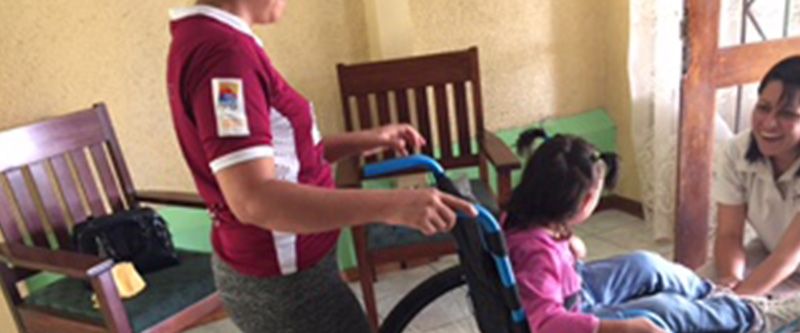
SANTO HERMANO PEDRO FOUNDATION
This is a temporary shelter for children with chronic diseases living in high social vulnerability conditions, which was formed in conjunction with the National Children's Hospital in 2015.
Read MoreSanto Hermano - Pedro Foundation
SANTO HERMANO PEDRO FOUNDATION
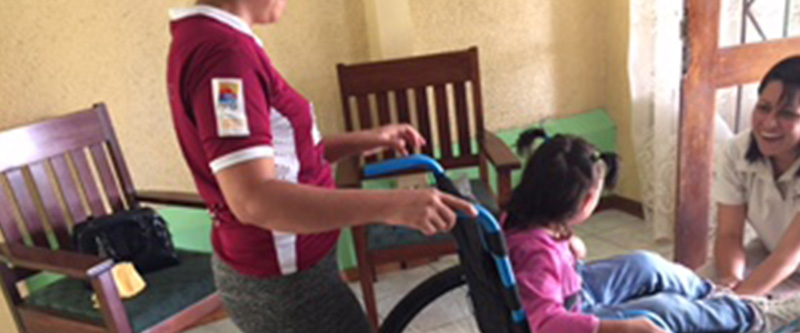
Project detail
This is a temporary shelter for children with chronic diseases living in high social vulnerability conditions, which was formed in conjunction with the National Children's Hospital in 2015.
This shelter serves children from ages 0 to 13 years old that have chronic diseases and live in poor rural areas. They receive children who are burned, who need transplants, who are waiting for surgery, and chronic patients with congenital heart disease, respiratory problems, diabetes, short bowel syndrome, and metabolic diseases, among others.
The hostel has four main houses. These are equipped with bedrooms, bathrooms, kitchens, and a care center, which will house children in their pre- and post-operative recovery stage.
This program works hard so that the Children's Hospital can provide treatment and follow-up to these children without them needing to stay at the hospital (but rather on an outpatient basis). At the same time, their mothers and/or caregivers will receive preparation from the shelter to take special care of their children with their respective nutritional plans, medication doses, equipment manipulation, etc.
The shelter also helps children’s relatives have a hygienic place near the hospital where they can stay and have everything necessary for them to take care of their children. There are cases in which families come from remote areas of the country, and when the children are taken to their homes, they do not have hygienic places for their care, which aggravates their situation. In these cases, the children and their caregivers can stay at the hostel while hygienic adjustments are made in their own homes, until they are given authorization to go home.
The Children's Hospital ensures that children have the medicines and technological support they need, depending on the case (oxygen concentrators, infusion pumps), etc. Children should also attend their medical appointments. For this, they have an ambulance service from the shelter to the hospital.
ARA Tours provides support through donations in equipment and the necessary infrastructure for the care of the children in the shelter. The funds are donated by our SEMOS clients from our Selected Moments program. In 2015, a donation was made of five metal cribs that were required for infant care; also, a stainless steel table was given to use in preparing nutritional foods for the children. In 2017, improvements were made to the laundry area’s roof, which were necessary before the rainy season. In conjunction with the Transparency Association, we donated a wheelchair to Charlotte Víquez, a young girl who has an acquired neurological disability and has movement difficulty.
Financial report
|
Date of donation |
Invoice |
Concept |
Total Amount |
|
January 21, 2015 |
195 |
Manufacture 5 metal cribs with interlaced tubes painted white |
$ 802,00 USD |
|
June 29, 2016 |
3099 |
Purchase stainless steel table for the kitchen |
$ 255,00 USD |
|
July 2, 2016 |
090 |
Demolish the old table to place the new table |
$ 164,00 USD |
|
January 15, 2017 |
447770 |
Materials to fix the laundry area roof |
$ 766,00 USD |
|
|
TOTAL |
$ 1.987,00 USD |
|
Even though we already supported this project, it is our interest to continue with this work, since important cases that merit ongoing help are presented daily. We would like to continue supporting this type of initiative.
Would you like to support this project with us? Contact us and we will get back to you immediately with more information.
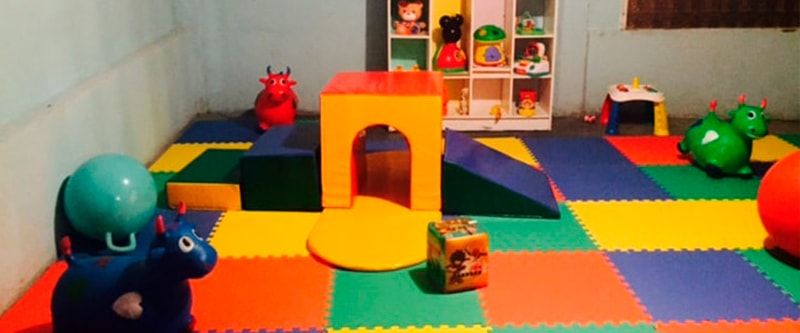
LACITOS DE AMOR CHILDREN’S CENTER
Lacitos de Amor Children's Center opened its doors in 2009, but due to a lack of financial resources, it almost closed. In January 2012, Pastor Gabriela Valverde Morales decided to take up the challenge of helping the Children’s Center.
Read MoreLacitos de Amor - Children's Center
LACITOS DE AMOR CHILDREN’S CENTER
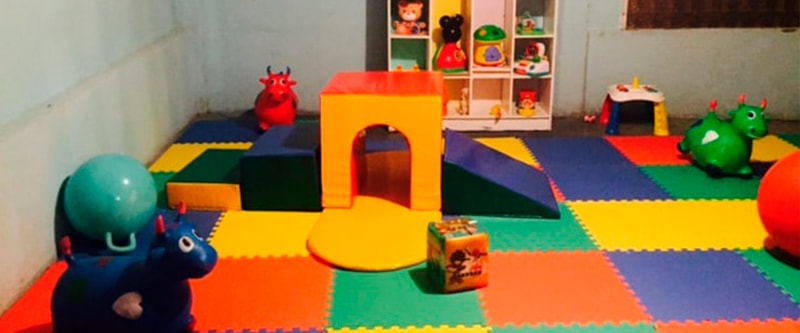
Project Detail:
Lacitos de Amor Children's Center opened its doors in 2009, but due to a lack of financial resources, it almost closed. In January 2012, Pastor Gabriela Valverde Morales decided to take up the challenge of helping the Children’s Center.
This center works both as a nursery and a cafeteria for children. It serves approximately 130 children per day, ranging in age between 0 and 12 years old, who are at social risk. They are in this center because they have been referred by the government, or because they come from challenging situations: dysfunctional families, adolescent mothers, drug addiction and alcoholism in the family, intrafamily violence, extreme poverty, etc. The number of children increases at night so that their mothers can study at night school.
Currently, the children's center is run by four women heads of households who dedicate their time to the care and attention of these children. They are responsible for cleaning, feeding and caring for the children.
Every two months, a psychologist visits the center (referred by the local medical clinic) and deals with the needs, problems and traumas of the children. They have a nutritionist (also referred by the local medical clinic) who comes every four months and who makes special menus for each child, dealing with issues such as being underweight or obesity problems. A nurse comes daily and monitors the children’s health. There are two teachers and two assistants who provide education at the center.
Needs:
The current facilities require upgrades to meet the center’s daily needs. Internal wall divisions must be built, columns reinforced for a future second floor, doors and windows added, the electrical installation must be improved, toilets must be fixed, and ceramic walls must be improved for better hygiene. There is also a lack of furniture (desks) and educational materials for the children. The area for recreational activities needs a roof, especially for the rainy season.
The 130 children who are attended to daily at the Children's Center stand to benefit the most from proposed improvements. By improving the facilities, children can be better divided into groups by age and needs, such as early stimulation or education reinforcement.
The improvements will create a safer area for the children and give peace of mind to their parents that their children are in a place with safe facilities. Roofing the recreational area will allow children to be able to use it even in the rainy season; and early education materials will help children learn according to their age and intellectual development capacity.
Nutritional help also is always needed: basic grains, meats, vegetables and fruits. Personal hygiene products are always in demand: toilet paper, hand soap, toothpaste, diapers, etc. The center provides five meal times for the children (breakfast, first snack, lunch, second snack, dinner, last snack), so any assistance is always welcome.
The Children’s Center works to improve the quality of life of children, moving them away from the streets, instilling values, reinforcing continuity in the educational centers they attend, and protecting them from social and family problems on a daily basis.
The center also provides the daily nutritional support that the children need, since in many cases it is the only food they receive during the day. Their families are often economically limited to provide them with the necessary nutrition for their physical development.
Improving the center’s facilities will help determine each child’s future. They have support from the government agency IMAS that refers children after studying each personal case. The center makes sure they visit the mother of each child before the child is placed, in order to know their economic condition and what help can be given. The National Child Welfare Agency (PANI) refers cases of abandonment and different problems.
Financial Report
|
Date of donation |
Invoice |
Concept |
Total Amount |
|
December 2, 2014 |
467419 |
Materials for construction of wall and ceiling in the area for 0 to 4 years |
$ 802,00 USD |
|
August 26, 2016 |
697125 |
Materials for the floor of the area for 0 to 4 years; put ceramic tile in the kitchen |
$ 1.570,00 USD |
|
January 4, 2018 |
860 236 |
Roofing materials for the recreational area |
$ 2.550,00 USD |
|
|
TOTAL |
$ 4.922,00 USD |
|
This is a daily job. The center is constantly receiving children and their needs never cease. Our goal is to continue supporting the Lacitos de Amor Children’s Center, so your contribution will always be welcome.
Would you like to support this project with us? Contact us and we will get back to you immediately with more information.
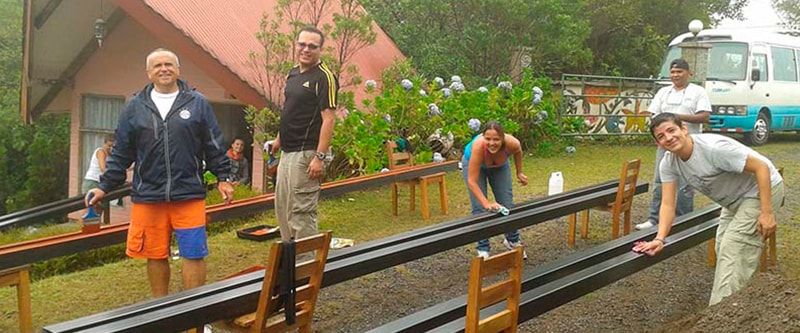
LAS ORQUIDEAS LODGE – MIRAMAR, PUNTARENAS
Zapotal is a small community located in Miramar in the Puntarenas province. It is surrounded by an exuberant landscape of cloud forest and is home to a few families that live a traditional Costa Rican lifestyle.
Read MoreLas Orquideas Lodge – Miramar, Puntarenas
LAS ORQUIDEAS LODGE – MIRAMAR, PUNTARENAS
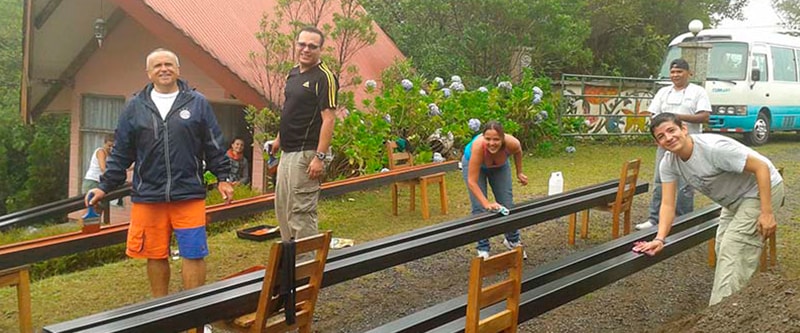
Project Detail:
Zapotal is a small community located in Miramar in the Puntarenas province. It is surrounded by an exuberant landscape of cloud forest and is home to a few families that live a traditional Costa Rican lifestyle.
The idea of expanding rural community tourism here fits with the Zapotal community’s daily activities, such as milking cows, raising pigs, processing cheese in an artisanal way, and producing agricultural crops, among others. These activities have been maintained over generations and continue to be the pillar of development of the community.
Since 2012, ARA Tours has decided to support the community of Zapotal in a project that is under development – Las Orquídeas Lodge. This project represents a small ecolodge that has four cabins, a reception area, and restaurant service. The lodge is registered with the Costa Rica Tourism Board and holds the requirements to operate, according to the Health Ministry. Adjustments must be made to the infrastructure so that it is accessible to all people, as dictated by Costa Rican Law 7600.
Therefore, ARA Tours is supporting three specific projects in their respective stages:
First contribution Zapotal Project: Law 7600
First stage: remodeling of bathrooms
The first stage was carried out in 2014 and consisted of adapting one of the bathrooms to comply with the law for disabled access. Modifications included: raise the toilet height to be the same as an average wheelchair, so a person can move from the seat without any problems. Also, handrails were installed on the wall for better mobilization. The sink was lowered so that it would be easily used by someone at the height of an average wheelchair; and a switch with a buzzer was installed at a low height, so a person could ask for help if necessary. In addition, in the existing men’s bathroom, a urinal was installed. A women’s bathroom had to be completely re-built, because space was added to the kitchen.
Second stage: creation of a Reception area
Also in 2014, this second stage was developed. It consisted of creating a small reception area that adjoins the restaurant and which can be accessed by people with a physical impairment (ramp). The door that connects the entrance to the restaurant is wide enough so it can be accessed by a wheelchair, walker, etc.
We also collaborated with the formulation and installation of informative tourist signs for the lodge, which were placed along the route to the lodge from the entrance of Zapotal. A total of six easily identifiable, reflective signs were placed for clients who visit the area.
Third stage: Cabin 7600
This stage was completed in 2017. We adapted an existing cabin to be fully accessible for disabled persons, according to Law 7600. Adjustments were made to the cabin entrance, the entrance door, and the toilet and shower in the bathroom.
We built a ramp to one of the existing cabins and painted all the roofs of the other cabins. We also helped in painting the community school, which will be used as a research center.
We made an agreement with the community for this project. ARA Tours was in charge of managing permissions and documentation procedures, designs of plans by the architect, and purchase of materials for the stages. The members of the community were in charge of hiring human resources and paying their fees (lodging, food, economic remuneration).
Second contribution Zapotal Project: Tourism training
The second contribution was made in 2016. We provided training for the community to prepare them to manage their small businesses, including a Trapiche Tour (sugar cane mill), Cooking Class Tour, and family accommodations. They were going to soon receive tourists, so they needed to be prepared to provide quality services. Therefore, the community received basic training in customer service, food handling standards, emergency care, environmentally friendly service, entrepreneurship, etc.
Third contribution Zapotal Project: Product marketing
Once trained, they needed to be commercially promoted in order to increase the number of customers. Although this was not the main objective of our support, it also was necessary to help the community on this matter to maintain their sustainable development.
Financial Report
|
Date of donation |
Concept |
Total Amount |
|
2014 |
I Stage |
$ 1.467,00 USD |
|
2014 |
II Stage |
$ 6.539,00 USD |
|
2016 |
III Stage |
$ 2.816,00 USD |
|
2016 |
Trainings and training trips |
$ 3.090,00 USD |
|
2013-2017 |
Inspections and support with volunteers |
$ 1.642,00 USD |
|
|
TOTAL |
$ 15.554,00 USD |
There is still much to do in Zapotal. We want the community to take ownership of their own ventures, so we still work to support their needs. We extend to you an invitation to help us improve the community and its families over time.
Would you like to support us with this project? Contact us and we will get back to you immediately with more information.
Contact Information
Direct Phone:
Tel: +506 2438-7637
Cel: +506-8881-0468
Tel: 2232-0400 ext. 208
Email Us
Email:
